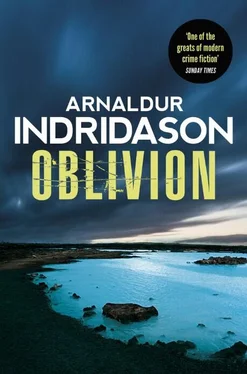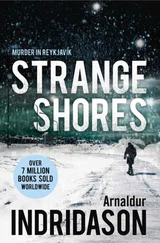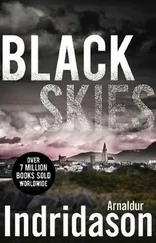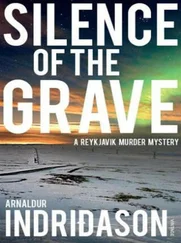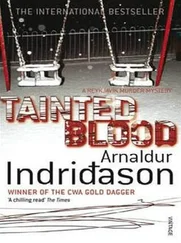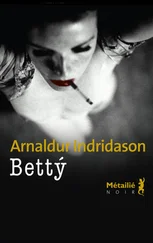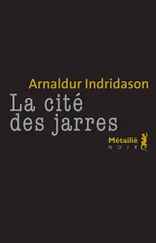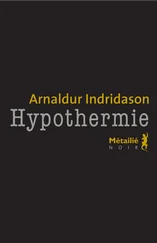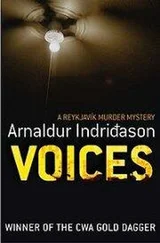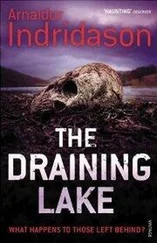‘Faulty landing gear. Kristvin worked on that. In fact, it was probably the last job he did for us before he died.’
‘What plane was this?’ asked Marion.
‘A transport. C-130 Hercules. The biggest there is.’
‘Isn’t it fairly standard for planes like that to land here?’ said Erlendur. ‘Hercules, I mean.’
‘Sure, yeah,’ said Engilbert. ‘Except...’
‘What?’ prompted Marion.
‘Oh, it’s just that some guys from Reykjavík air traffic control were out here the other day about another matter and happened to mention the operator,’ said Engilbert. ‘Its status was a bit of a mystery.’
‘Which operator?’
‘NCT.’
‘NCT?’
‘The aircraft’s registered under a civilian operator, a commercial airline calling itself Northern Cargo Transport. They stop over in Keflavík quite regularly but air traffic control has no information about their movements — you follow? They found it a bit odd. The guys at air traffic control.’
‘No, I don’t follow. What do you mean?’ asked Marion. ‘Why doesn’t air traffic control have any information about their movements?’
‘There can only be one explanation,’ said Engilbert. ‘They come in under the air-force call sign. Like the military aircraft from the base. The military aircraft aren’t differentiated but all come in under the same call sign.’
‘I still don’t quite follow. You’re saying Northern Cargo Transport’s a commercial outfit?’
‘That’s right.’
‘But lands here under cover of the air force?’
‘You could put it like that,’ said Engilbert. ‘They’re a civilian operator but use the same call sign as the US air force when they enter Icelandic airspace.’
‘Are they operating on behalf of the American air force then?’ asked Erlendur.
‘Don’t know. Looks like it.’
‘Why do you suppose they do that?’ asked Marion.
‘Search me, mate.’
‘And Kristvin was working on this plane?’
‘Yep.’
‘That’s a socking great building,’ commented Erlendur, his eyes on the hangar.
‘I imagine the ceiling must be very high inside?’ said Marion.
‘Yeah, unbelievably,’ said Engilbert. ‘You could fit a block of flats in there. And they’re working up in the rafters, the plumbers, installing a fire-extinguisher system. Not a job for the faint-hearted.’
‘Are these Icelandic contractors?’
‘Yes. They have massive work platforms that reach up to the ceiling. I wouldn’t want to take a tumble off one of those, I can tell you.’
Later that afternoon CID received authorisation from the US commander’s office to question base personnel and their families about Kristvin and the car that had been found by the barracks. This was only granted on condition that Marion and Erlendur were accompanied by a special military police liaison officer. Marion objected, assuming the liaison officer was being foisted on them purely in order to spy and report back to the army about what they uncovered. Not only that but the presence of a military representative might make people reluctant to speak to the Icelandic police. But the authorities wouldn’t back down: if the Icelandic police wanted to interview American nationals on US territory, it would have to be done in consultation with the Defense Force and in the presence of its representative. Furthermore, it was pointed out that this was an exceptional case and should not be taken as a guarantee of further cooperation.
While they were awaiting approval, Erlendur and Marion had made a quick trip into the neighbouring town of Keflavík to talk to the men installing the sprinkler system in Hangar 885. They were employed by a local plumbing firm and, when asked, said that none of them knew Kristvin. Their boss explained that work on the system had been on hold for the last two weeks because they had been busy with other projects, but that it was more or less finished and all that remained was to tidy up and dismantle the scaffolding, which was not their job anyway.
When Erlendur and Marion returned to the base, the liaison officer was waiting for them by the barracks where the Corolla had been found. Like Marion, Erlendur had been expecting the obstructive young sergeant they had already encountered. But the officer turned out to be a slim black woman of around thirty, with short, jet-black hair under her cap, and a decisive manner. She was in uniform with an MP armband and had a pistol in a holster on her belt. She introduced herself as Sergeant Caroline Murphy and explained that she would be present during the interviews. She came straight to the point.
‘I hear you object to this arrangement,’ she said as she shook hands, ‘but I can’t do anything about that. The sooner we get it over with the better, so I suggest we make a start.’
‘Fine by us,’ said Marion.
‘What grounds do you have for believing that this Kris... this man was killed on the base?’ she asked.
‘His car was found here,’ said Erlendur. His English was self-taught but serviceable. ‘That’s all we know.’
‘We’d like to establish if that’s what happened,’ said Marion. ‘Have you been here long? In Iceland, I mean.’
‘Two years.’
‘There aren’t many women in the army, are there?’ asked Marion.
‘Our numbers are growing,’ said Caroline, ‘though we’re not allowed to take part in combat. Yet. Do you have many female detectives in Iceland?’
‘No, sadly not,’ said Marion. ‘Not enough. Did you know that the Icelandic government used to ban black soldiers from being stationed here?’
‘Yes, I heard about that,’ said Caroline. ‘Real nice of them.’
‘Ignorant bigots,’ said Marion.
‘Times have changed, I guess,’ said Caroline, displaying rather more tolerance than Marion.
‘Ignorant bigots all the same.’
‘Shall we start here?’ asked Caroline, indicating the nearest block. ‘I assume you have a photograph of the man?’
‘Yes, let’s get down to business,’ said Marion.
They went from flat to flat, asking the residents if they knew Kristvin, showing them the photograph and enquiring whether they had seen the grey Corolla or knew what it was doing there. People were mostly very helpful, if surprised by their visit, and inquisitive about the incident. Apparently no one recognised Kristvin from the photo or had noticed the Corolla parked outside, let alone witnessed the tyres being slashed.
The same went for the occupants of the other barracks. Some had noticed the grey car because the tyres were flat, but no one had seen it arrive or knew who owned it or who had vandalised it. No one recalled seeing it in the area before. Occasionally they were invited inside, but mostly they were left standing out in the corridor. Erlendur and Marion kept steering the questions round to cigarettes, vodka and marijuana, and some people took offence while others laughed and said they were well aware of the Icelanders’ interest in these items but denied any personal involvement in dealing. Few of the personnel had any contact with the locals. A couple of them said they had seen Icelanders down by the vending machines in the lobby, stocking up on cigarettes and beer. Sometimes they emptied the machines, much to the disgust of the residents.
They only encountered three instances of unpleasantness, with people refusing to answer any questions put to them by the Icelandic police. At this point Caroline intervened and politely requested that they cooperate. When they didn’t, she told them that they were welcome to refuse but they would be hauled in for questioning at military police headquarters instead. If that’s what they would prefer, it could easily be arranged, she informed them crisply. It never came to that. The individuals in question backed down and answered with curt resentment.
Читать дальше
